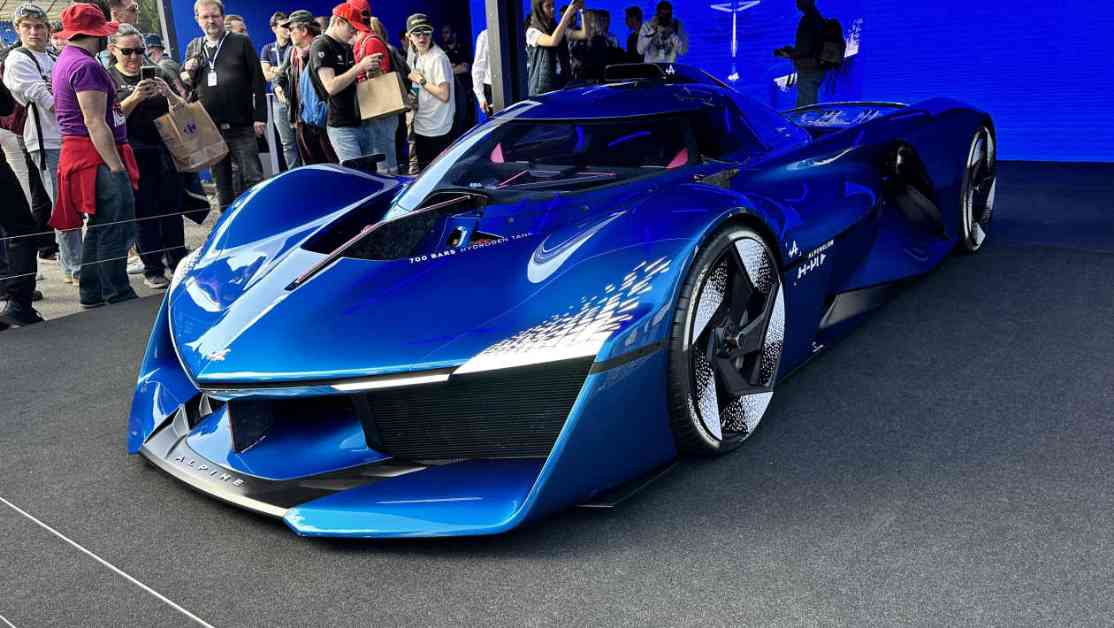Alpine has introduced the Alpenglow Hy4, a hydrogen-powered racing prototype that is set to make its track debut at the 6 Hours of Spa-Francorchamps. This prototype serves as a ‘rolling lab’ to showcase the potential of hydrogen power in performance cars and could pave the way for future race-inspired models from Alpine.
As the automotive industry faces increasing pressure to achieve carbon neutrality objectives, Alpine is taking steps to develop high-performance vehicles that run on sustainable fuels. While the brand is gearing up to launch seven new all-electric models by 2030, starting with the A290 hot hatch in 2024, the possibility of hydrogen-powered cars is also being explored.
Bruno Famin, Alpine’s vice president, envisions a future where hydrogen power extends beyond track cars to Alpine’s road-going vehicles. He emphasized the importance of learning from the technology used in the Alpenglow Hy4 prototype, suggesting that Alpine may consider incorporating hydrogen power into its future road car lineup.
Unlike traditional hydrogen cars that utilize fuel cell technology, the Alpenglow Hy4 features a unique approach by using a traditional internal combustion engine. This engine, based on an Oreca-derived 2-liter turbocharged four-cylinder, is designed to inject hydrogen directly into the engine, rather than generating electricity through a fuel cell. Alpine claims that this setup offers efficiency, reduced emissions, and improved cooling capabilities while maintaining familiarity for drivers and spectators.
The Alpenglow Hy4 prototype boasts impressive performance figures, including a 7000rpm redline, a top speed of 168mph, and 340bhp delivered through an Xtrac sequential transmission. The vehicle is equipped with three 55-liter hydrogen tanks, each holding 2.1kg of gaseous hydrogen at a high pressure of 700 bar. To ensure safety, the hydrogen is injected into the engine at a lower pressure of 40 bar while driving.
While the current prototype has a limited range of 62 miles on the track, Alpine is exploring the use of liquid hydrogen as a potential solution to increase range. However, storing and maintaining liquid hydrogen at extreme low temperatures present significant challenges.
In terms of design, the Alpenglow Hy4 stays true to the concept introduced in 2022, drawing inspiration from Alpine’s racing heritage while showcasing the brand’s future design language. The two-seat cabin features a triangular indicator display for essential vehicle information, along with premium materials like carbon fiber, aluminum, and Alcantara trim.
Although there are no immediate plans to put the Alpenglow into production, the development of hydrogen combustion engines by the Renault Group and the authorization of hydrogen-powered racers by the ACO for the 2027 24 Hours of Le Mans indicate a promising future for hydrogen-powered vehicles in motorsport. It remains to be seen how Alpine will continue to innovate in the realm of sustainable performance cars.










